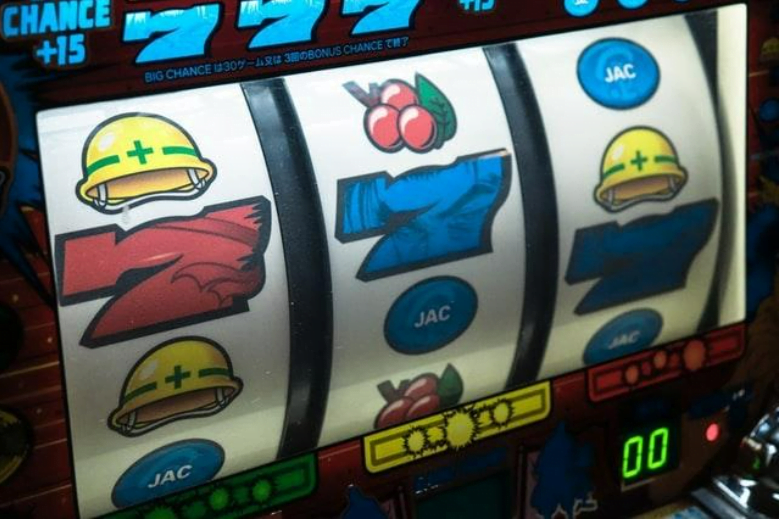Although gambling is quite popular in Asia, the market is different compared to what players have come to expect from the West. You won’t find casinos as you know them here, and the platforms that offer online gambling don’t have the same features that you may have come to expect.
However, gambling is a popular form of entertainment that generated 20 trillion Japanese yen in 2019.
Millions of people play games of chances, both online and in parlors, and there are millions of machines across the country.
Whether you plan to travel to Japan soon, you’re about to move there, or you’re just curious about the particularities of their gambling market, here are the most interesting things you should know about:
The most popular forms of gambling in Japan are pachinko and pachi-slot
If you look up photos of gambling venues in Japan, you’ll see that they don’t have casinos as we know them. However, they do have something similar.
They’re called pachinko parlors, and they’re tremendously popular, cashing in 30 times more than Las Vegas casinos.
The Japanese spend over $200 billion on pachinko, and there are over 10,000 such parlors across the country. So, what exactly are these games, and how do they work?
Interestingly, pachinko is in many ways similar to a slot machine, at least as far as the underlying mechanics are concerned.
According to a Financial Times analysis, Japanese pachinko parlors buy over 1.5 million new machines every year, so this is without a doubt a popular form of entertainment.
However, this is about to change in the following years. Many Western casinos have entered the Japanese market, and there are now online casino slots for Japanese players who want to try something different.
The legal status of gambling is still unclear in Japan.
One of the biggest differences between the European and Japanese gambling markets is that, in Japan, gambling has a complicated legal status. Until not very long ago, gambling was entirely prohibited, and pachinko slots functioned in a grey legal area. Now, the Government has a more flexible stance, having understood that gambling can benefit the economy. However, some limitations still exist.
For example, players may only be allowed to visit a parlor a certain number of times per week and pay a fee to enter.
This skepticism is mostly due to the fact that Japanese authorities are afraid of the implications of gambling or, more specifically, gambling addiction. It should be pointed out that, in Japan, there are no available therapies for problem gambling, pachinko parlors do not offer resources to tackle it, and thus legislators prefer banning these locations altogether.
However, history has shown that banning an activity by law isn’t the best solution and that drafting special legislation is a much better option. After all, one out of every 11 Japanese people plays at pachinko machines; this form of entertainment is embedded into Japan’s culture.
The first land-based casinos could soon be coming to Japan.
Just because pachinko is the most popular form of gambling in Japan doesn’t mean that the Japanese aren’t interested in trying new things. In fact, the first casinos, as we know them in North America and Europe, could soon be opened there.
This is part of an extensive project that aims to help the local economy, especially tourism. These casinos will not be opened all across the country, though.
At present, Osaka and Nagasaki are shortlisted, and the prefectures of Hokkaido and Wakayama have also expressed interest in casino resorts that will include, among others, hotels, restaurants, and other entertainment facilities.
These resorts were approved mostly for economic reasons and are targeted at tourists. So, if you plan on traveling to Japan soon, chances are you will be able to visit a land-based casino. The first resorts are expected to open in mid-2021, although there might be some delays due to the current restrictions.
What gambling options do Japanese players have?
Although the gambling market is legally and culturally different in Japan compared to Europe or North America, Japanese players still have options. In physical casinos, the options are indeed subject to limitations.
In some regions, the parlor may even limit your winnings down to a certain amount, which, although it is a good idea for people with gambling problems, can be unfair for skilled players and players who have carefully calculated their odds.
In this case, playing online can be a great alternative, especially considering that the online casino market has grown significantly in the past few years. However, you have to choose online casino carefully if you’re not used to Western gambling because the games and features vary a lot.
The Western online casinos that have entered the Japanese market in the past year do offer some pachinko-inspired games, but, in general, their game range includes options like slot games, poker, blackjack, roulette, baccarat, and other similar ones, which many Japanese players have heard about and are curious to try. Many game developers have adapted their slot games, so you can find games with anime-inspired graphics and other elements with a local flavor. To welcome new players, these casinos have also included in their offer bonuses and promotions: welcome bonuses, no deposit bonuses, match deposit bonuses, free spins, loyalty bonuses, and much more.
When visiting these online casinos for the first time, you can expect the same experience as in Western casinos. In the past years, technology has reached a point where gameplay experiences are smooth, and the graphics are simply incredible. What’s more, withdrawals and deposits are seamless, and you can choose from many payment options, including digital payment services that are specific to Japanese clients.
If you don’t like casinos in particular but are interested in other games of chances, you have options: apart from pachinko, other forms of gambling in Japan include sports betting, Keirin (a type of bicycle racing), Kyoutei (powerboat racing), and motorcycle racing.

